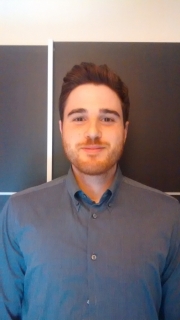I'm currently enrolled in the PhD program in Computer Engineering at Sapienza, University of Rome.
I received the Master’s Degree in Computer Engineering at Sapienza, University of Rome in 2017, and a Bachelor’s Degree in Computer Engineering at University of Calabria.
During my studies, I fed my passion for low-level programming and operating system internals by combining theoretical and practical aspects and I enjoyed gaining analytical and conceptual skills by working on a variety of challenging problems.
Although I was fascinated by embedded systems and digital electronics since my Bachelor’s degree, the Embedded System course introduced me a different way of thinking when devising firmware on RISC machines and dealing with time-sensitive devices.
The associated internship experience inside the INTECS company made me implement in practice the theoretical knowledge on real hardware and professional laboratory instruments.
On the other hand, Operating Systems courses clarified the real-life challenges when designing and implementing advanced software modules for efficient hardware exploitation on modern processors, especially those CISC-architecture based.
While working on my master thesis I started collaborating with HPDCS group at Sapienza: this allowed me to learn the value of team-working and I improved my problem-solving ability, which granted me to continue the research finding innovative methodologies and efficient solutions.
I'm interested in low-level programming because it represents the hardware interface for the high-level software, and providing an efficient solution is not always an easy task.
In fact, such a programming level requires perseverance and perspicacity put side by side to a deep knowledge of the hardware architecture, which internals are not always reported inside documentation making this kind of programming a mix of intuition and art.
My doctoral studies focus on continuous profiling techniques, exploiting their contributes for optimizing the whole system workload and taking advantage of sophisticated, not yet well-integrated, hardware supports, also meeting the challenge of finding new ways of adoption.

